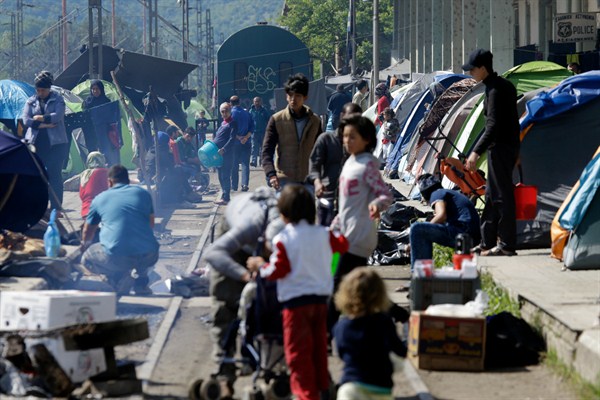On Friday, the aid group Doctors Without Borders, known by its French acronym, MSF, announced that it will no longer take money from the European Union or any of its member states, in a denunciation of the union’s “intensifying attempts to push people and their suffering away from European shores.” In 2015, the group received about $42 million from member states and nearly $21 million from the EU itself.
The move is a response to a deal between the EU and Turkey, in which Turkey agreed to take back all migrants, including Syrian refugees, who arrived on Greek islands, in exchange for an increase in EU assistance to Turkey. The deal, which is currently being implemented, has seen some success in reducing the number of migrants crossing the Aegean. But it has also drawn the ire of human rights groups, who say it violates international legal protections for refugees.
Replicating the logic of the Turkey deal, the European Commission, the executive body of the EU, announced a plan in early June to provide positive and negative economic incentives to African and Middle Eastern governments, to induce them to assist in curbing migrant and refugee flows to Europe. The stated priorities of the “New Migration Partnership Framework,” as it’s called, “are saving lives at sea, increasing returns, enabling migrants and refugees to stay closer to home, and, in the long term, helping third countries’ development in order to address root causes of irregular migration.” The commission says that up to $9 billion would be put toward the effort over the next five years, with a focus on African partner governments.

